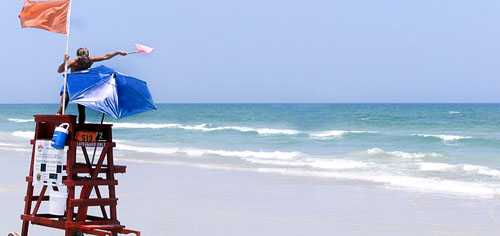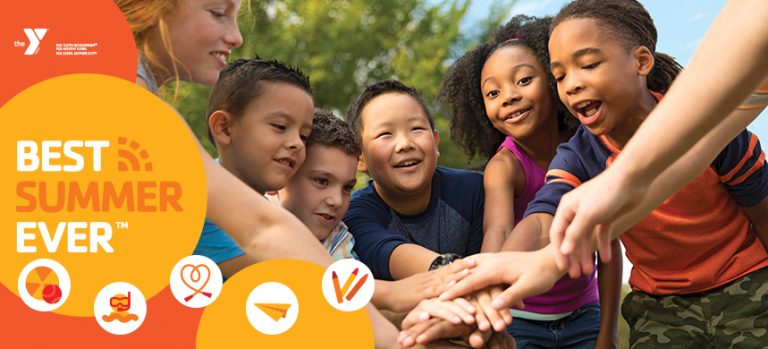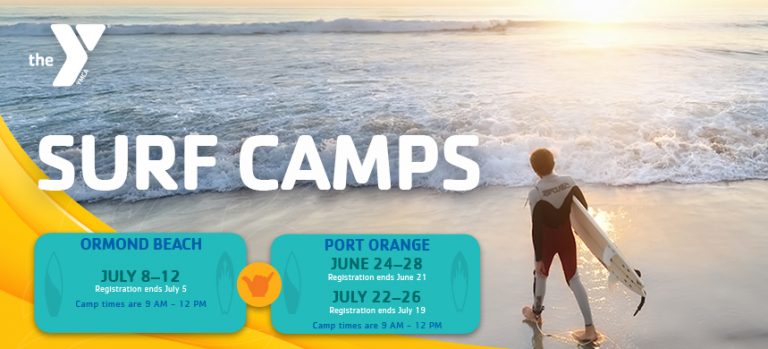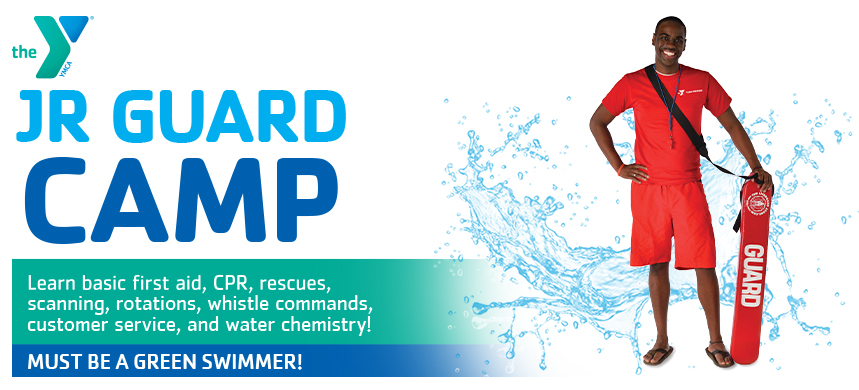Do you know a child who loves the sun, sand and surf? If so, make their summer one to remember with Volusia County Beach Safety’s Junior Lifeguard Program.
From June 7 through the end of July, youths between 9 and 15 can enjoy beach activities while learning lifesaving techniques. During the week-long camp, professional lifeguards will offer participants a chance to learn about water safety and first-aid techniques. Junior lifeguards will also take part in daily team relays involving surfboard paddling, swimming, running and beach flags.
The Junior Lifeguard Program is not a learn to swim program. To qualify, junior lifeguards must be able to swim 100 yards within two minutes and 15 seconds, tread water for five minutes, and swim under water 10 feet.
Candidates must take a physical skills test, which is being offered:
Saturday May 8
8 – 10 a.m., Four Townes Family YMCA, 280 Wolf Pack Run, Deltona
11 a.m. – 1 p.m., Deland YMCA, 761 E. International Speedway Blvd.
Saturday May 15
8 – 10 a.m., Edgewater YMCA, 148 W. Turgot Ave.
11 a.m. – 1 p.m., Ormond Beach YMCA, 500 Sterthaus Drive
Saturday May 22
8 – 10 a.m., Ormond YMCA
11 a.m. – 1 p.m., Port Orange YMCA, 4701 City Center Parkway
Saturday May 29
8 – 10 a.m., Edgewater YMCA
11 a.m. – 1 p.m., Port Orange YMCA
Saturday June 12
9 a.m. – noon, Ormond YMCA
If a child cannot attend either tryout, a limited number of slots are available for try-out at the ocean the Monday morning of camp. To reserve a Monday morning tryout, email jrlifeguard@volusia.org and include the desired camp date.
Candidates may register for the summer camps after passing the physical skills test. Registration is open and can be completed at www.volusia.org/beach. Returning junior lifeguards do not have to take the physical skills test and may register at any time. Tuition is due upon registration. The cost for a one-week camp is $150.
In light of the COVID-19 pandemic, additional measures have been put in place to mitigate any potential risk. Efforts include splitting campers in to smaller groups, temperature checks, discontinuation of community water jugs in favor of individual bottles, staggered lunch breaks and safety checks.








